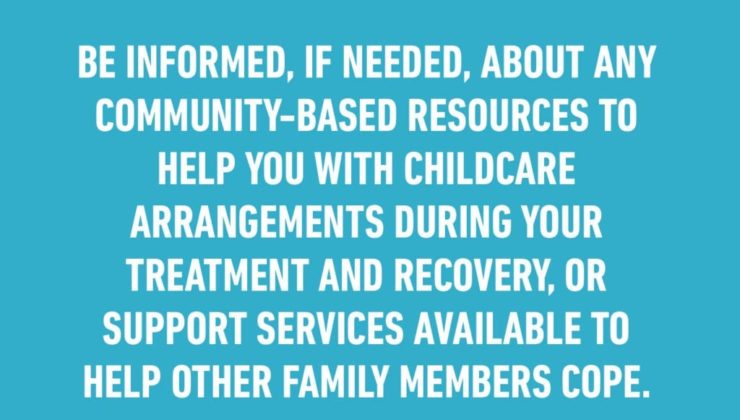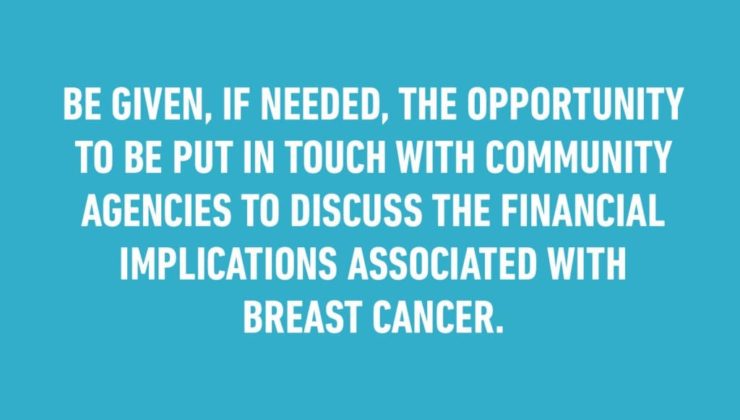The List: 4 Things You Should Know About Surrogacy

When “traditionally” getting pregnant becomes less of a reality women may start to seek out other family planning options like adoption and surrogacy or gestational carrier (yes, there is a difference which we will explain below).
Getting information for the latter is tricky and especially challenging when you don’t have the means or resources. We asked one woman who went down this road what advice she would give to another and here is what she said.
1. Gestational Carrier or Surrogate?
You can’t begin to do your research until you know what you are researching. Many people use surrogacy synonymously with gestational carrier. There is a big difference. A gestational carrier or gestational surrogate is a woman who carries a child conceived through the process of in-vitro fertilization utilizing the egg and sperm of either the intended parents and/or an egg donor or a sperm donor. In vitro fertilization (IVF) is a necessary part of this arrangement because eggs from one woman are used to create an embryo implanted in another. In IVF, fertilization occurs after eggs and sperm are combined in a laboratory. The resulting embryo or embryos are then transferred to the gestational surrogate’s uterus. The traditional surrogate is the baby’s biological mother because it’s her egg that was fertilized by the intended father’s sperm.
2. Selecting a clinic
There are a variety of fertility and reproductive clinics in Canada from which to chose. My oncologist took care of the referrals however he was inexperienced with fertility and reproductive clinics so referred to the clinics upon my request. Our experience was with two different carriers – friends who volunteered to help us have a child. We tried two rounds with our first clinic/carrier and when a pregnancy was not successful we were ready to quit. When a second carrier came forward we attempted a third round at the second clinic and a pregnancy ensued. The experience with both clinics was very different one from the other. The first clinic was affiliated with a hospital while the second was an independent organization (private clinic). The hospital affiliated clinic felt very regimented in their approach, while the private clinic’s approach was more personalized taking into account the special circumstances of individuals. At the private clinic we saw the primary physician (as opposed to a resident), who was well- versed with surrogacy and worked efficiently as part of their team. When I compare my experience between both clinics….it was like night and day. I had not previously considered how important the choice of clinic would be.
3. Choosing a lawyer
There is a lot of legal information that needs to be discussed and the contractual agreements between all parties are extensive. It is imperative that the lawyer be well versed in Surrogacy Law. Employing a lawyer that is unfamiliar with Surrogacy Law can result in confusion, delays and unnecessary costs. As an example, three lawyers were involved in the successful pregnancy process: one lawyer drafting the contractual agreement on behalf of us (the intended parents). Once the pregnancy was successful another lawyer was required. Each lawyer specializes in specific tasks and responsibilities. Finding out upfront “who” is responsible for “what” is important as it will minimize confusion of expectations and better prepare for costs.
4. Expenses
The entire process from carrier selection to post delivery is very expensive. There are opportunities to apply for funding assistance through Fertile Future – however we weren’t successful in completing the application due to issues with my insurance company and the way their billing worked. Fertility clinics do provide upfront an approximate fee schedule providing details relating to the cost of the various processes and fertility drugs etc., but then there are legal fees, potential donor/potential carrier/fertility clinic fees, and expenses paid to the surrogate (which is a capped amount). Some drug plans do not cover any of the fertility medication for the egg retrieval process or for implantation – important information to be aware of before beginning the process. There are also costs associated with agencies that assist in securing anonymous egg or sperm donors that can provide additional possibilities to potential parents, or agencies that can help find a carrier. – Anonymous








